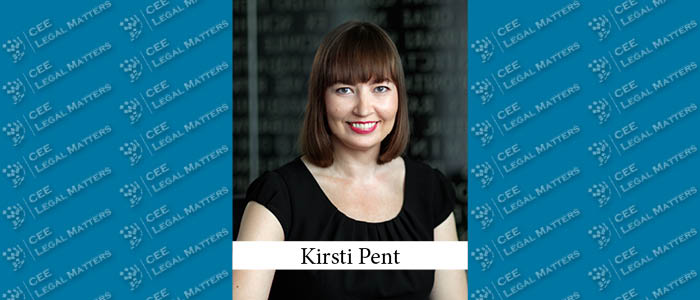Estonia is looking at reforming its tax system and the legal profession's standards, amid overall economic uncertainty that is impacting banking, finance, and start-ups, according to TGS Baltic Partner Kirsti Pent.
“One of the main general talking points in Estonia recently has been the planned governmental tax reform,” Pent begins. According to her, the government of Estonia is planning to “balance the state budget by raising the income tax for both natural and legal persons by two percentage points.” Currently, Estonian companies pay income tax only upon distributing profits. “For some years already, income tax at a lower rate has applied in case dividends are paid out regularly, but now the government is planning to abolish this advantage. The value-added tax will also be increased by two percentage points and accommodation services will become subject to the same general tax rate,” she explains.
Furthermore, Pent reports that the government seeks to introduce a vehicle tax – the lack of which has set Estonia apart from most other countries up to this point. “We’re one of the few countries that have yet to introduce a vehicle tax, but that stands to change soon,” she says. “While it is still not clear how this will be done, it is expected that two factors will weigh heavily: carbon dioxide emissions and whether the vehicle is a luxurious one.”
While Pent posits that the ongoing tax reform, if carried out correctly, might not generate much additional work for lawyers – and might not hold their interest for long – she says that the proposed reform to introduce a general legal exam very much will. “There have been substantial talks about potentially introducing a general legal exam in Estonia as means of remedying shortcomings in legal education and, potentially, also making it easier for legal professionals to change their career paths.” Currently, the country has dedicated exams for judges, attorneys, notaries, prosecutors, etc. – but not a general legal exam. “The general position of the Bar Association is that the draft law that seeks to implement this exam is not as thought through as it should be, seeing as how the overarching goal – as publicly declared – is to improve the quality of legal professionals in the country,” she says.
From a macro perspective, Pent says that the Estonian economy is in a bit of a gray area. “It is a sort of limbo status we are currently in, not being sure if we are going to enter into an even deeper downturn or if the worst has passed, given the highest inflation rates in the EEA we experienced recently,” she shares. “As a testament to the general uncertainty, for the past two to three years, domestic start-ups have had no problem with accessing finance, but this has become increasingly more difficult of late. Several factors have played into this, including the war in Ukraine and Estonia sharing a border with the aggressor,” Pent elucidates.
Finally, Pent reports that the banking and capital markets in Estonia are becoming more weary as well. “While we have had quite a few IPOs lately, especially on the alternative market, we do expect there to be fewer in the next couple of years.” According to her, the banks have become more conservative “given the overall economic situation and it is becoming a bit more difficult to raise money at a reasonable price.” Still, she points out, the “outcome will vary from one sector to another.”






















